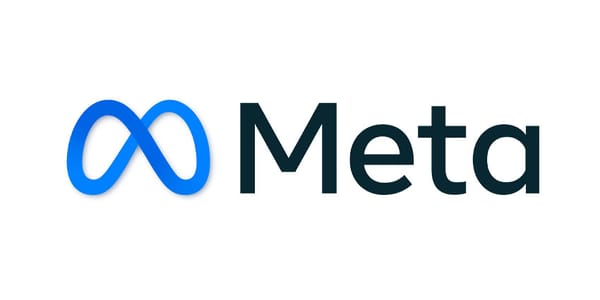Blockchain Revolutionizing Startup Operations and Security

In the fast-paced world of startups, innovation is key to staying ahead. One of the most transformative technologies making waves is blockchain. This technology, best known for powering cryptocurrencies like Bitcoin, is revolutionizing startup operations and enhancing security in unprecedented ways. With its decentralized, transparent, and immutable nature, blockchain offers a multitude of benefits that can significantly impact various aspects of startup operations. Let's delve into how blockchain is reshaping startup ecosystems, focusing on its implications for security, operations, and overall innovation.
Enhanced Security: Blockchain's Decentralized Advantage
At the core of blockchain technology is its ability to provide enhanced security through decentralization. Unlike traditional databases, which are often centralized and vulnerable to cyberattacks, blockchain operates on a distributed network of nodes. This decentralization means that no single entity has control over the entire network, making it highly resistant to hacking and fraud.
Blockchain's immutability further strengthens its security profile. Once data is recorded on a blockchain, it is nearly impossible to alter or delete. Each transaction is verified and added to a block, and these blocks are linked together in a chronological chain. This creates a transparent and permanent record of all transactions, which significantly reduces the risk of tampering and fraud.
For startups handling sensitive data and financial transactions, blockchain provides an extra layer of protection. With its secure framework, startups can safeguard their operations from potential cyber threats, ensuring the integrity and confidentiality of their data.
Transparent Record-Keeping: Building Trust through Visibility
Blockchain's transparent record-keeping is another game-changer for startups. Every transaction is recorded on a public ledger, which is accessible to all participants in the network. This transparency increases accountability and reduces the risk of fraudulent activities.
For startups, this means greater trust between them and their stakeholders, including customers, investors, and partners. By providing a clear and verifiable record of transactions, startups can build credibility and demonstrate their commitment to ethical practices. This level of transparency can be particularly valuable in industries where trust and accountability are paramount, such as finance, supply chain management, and healthcare.
Smart Contracts: Automating Agreements for Efficiency and Security
One of the most innovative aspects of blockchain technology is the concept of smart contracts. These are self-executing contracts with the terms of the agreement directly written into code. Smart contracts automatically enforce and execute the terms of an agreement when predefined conditions are met.
For startups, smart contracts offer several advantages. Firstly, they reduce the need for intermediaries, which can streamline processes and lower costs. For example, in a supply chain scenario, a smart contract could automatically trigger payment once goods are delivered, reducing administrative overhead and potential disputes.
Secondly, smart contracts enhance security by ensuring that all parties adhere to the agreed terms. The automated nature of these contracts minimizes the risk of human error and fraudulent activities, providing startups with a more secure and efficient way to manage agreements.
Blockchain and Operations: Transforming Business Processes
Beyond security, blockchain is revolutionizing startup operations in various ways:
- Supply Chain Transparency: Blockchain can track the movement of products from their origin to the consumer. This capability ensures that products are of high quality, authentic, and ethically sourced. For startups in the supply chain sector, blockchain provides an unprecedented level of transparency, allowing them to offer more reliable and traceable products to their customers.
- Efficient Payments: Traditional payment systems, especially for cross-border transactions, can be slow and costly. Blockchain technology facilitates faster and cheaper payments by eliminating intermediaries and reducing transaction fees. This can expand a startup's market reach and enhance its financial operations.
- Improved Fundraising: Blockchain introduces innovative fundraising methods, such as Initial Coin Offerings (ICOs). ICOs allow startups to raise capital directly from investors by issuing digital tokens. This approach bypasses traditional funding channels, providing startups with more flexibility and access to a broader pool of potential investors.
- Streamlined Operations: By automating various processes through smart contracts, startups can reduce paperwork and operational costs. This streamlining effect can lead to more efficient business operations and allow startups to focus on their core activities and growth.
Blockchain and Innovation: Pioneering New Business Models
Blockchain technology is not just about improving existing processes; it's also about creating entirely new business models:
- New Business Models: Blockchain enables the development of decentralized autonomous organizations (DAOs) and peer-to-peer marketplaces. These models offer innovative ways to conduct business, such as decentralized decision-making and direct transactions between parties.
- Increased Trust: The transparency and immutability of blockchain build trust between startups and their customers. This trust is crucial for fostering long-term relationships and creating a loyal customer base.
- Competitive Advantage: Startups that adopt blockchain early can gain a competitive edge in their industry. Being a pioneer in blockchain implementation can differentiate a startup from its competitors and attract attention from investors and customers.
Potential Challenges and Considerations
While blockchain offers numerous benefits, it also presents some challenges that startups need to consider:
- Regulatory Uncertainty: The regulatory landscape for blockchain is still evolving. Startups must navigate potential legal and compliance issues, which can vary by region and industry. Staying informed about regulatory developments and working with legal experts can help mitigate these challenges.
- Technical Complexity: Developing and implementing blockchain-based applications requires specialized skills and resources. Startups may need to invest in technical expertise and infrastructure to fully leverage blockchain technology.
- Scalability: Blockchain technology faces scalability limitations that can impact its widespread adoption. Startups must evaluate the scalability of blockchain solutions and consider potential solutions to address these limitations.
Blockchain technology is undeniably revolutionizing startup operations and security. Its decentralized and immutable nature enhances security, while its transparent record-keeping and smart contracts streamline operations and improve efficiency. As startups continue to explore and adopt blockchain, they can benefit from innovative business models, increased trust, and a competitive advantage. However, it's essential for startups to address potential challenges such as regulatory uncertainty, technical complexity, and scalability. By navigating these challenges and leveraging blockchain effectively, startups can position themselves at the forefront of the digital revolution and achieve long-term success.




